| 基本データとスペック | |
|---|---|
| 機種: | Game Pasokon |
| 発売日: | 1982年11月 |
| CPU: | Z80 @3.58MHz |
| RAM: | 4KB |
| 既定ストレージ: | tape |
| ブート環境: | cartridge required |
So I'll start by saying, this is a pretty interesting system! I don't think it's an excellent system, but it separates itself from being either a standard computer or a console pretty well. It is designed by a company with "real" computer roots - SORD - and is in fact an identical clone of the SORD M5, so the end result is, despite being essentially a toy, it has a much less cheap feel to it than its peers: the Sega SC-3000 and Tomy Pyuta. So perhaps it most closely resembles the MAX Machine, as it was also created by a computer company - Commodore. And also like the MAX Machine, it has a unique color scheme. In a sea of beige and black, with the "rare" color also being something of a go-to red, this is blue, gray, and yellow. Cool! As a nice bonus, mine came as a full set with a few extras. 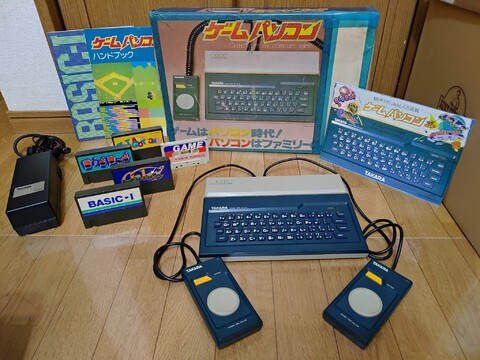   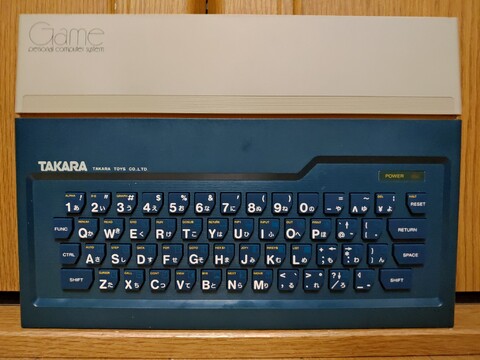   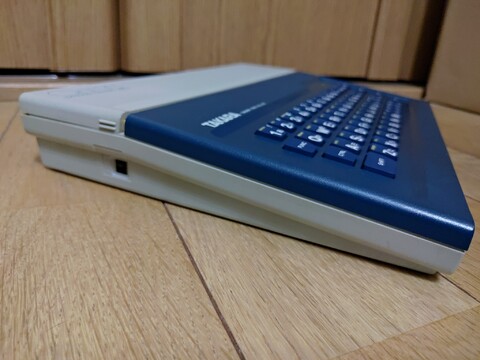  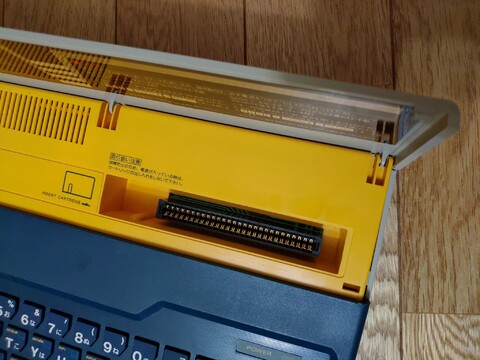     The back of the box talks about its size, and it is truly compact, being the length and width of a B5 sheet of paper. It's also fairly lightweight, I don't think it could have been more than about 800g. But! That's just the system. If you want to *use* it, you need the power supply. While not especially large, it does certainly weigh more than the computer. And unlike the MAX Machine, the PSU should be easily accessible, not laying on the floor behind the desk, because that's where the power switch is. 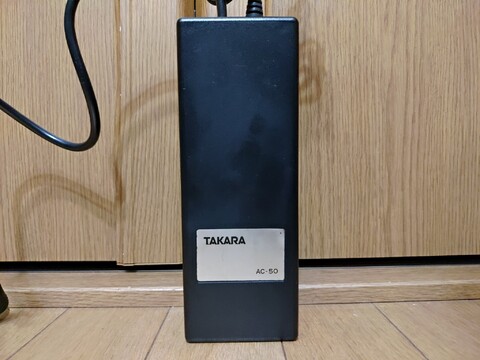  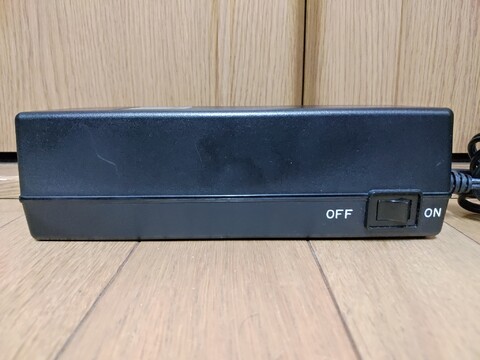 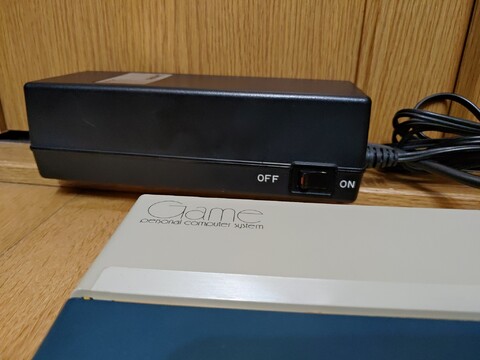 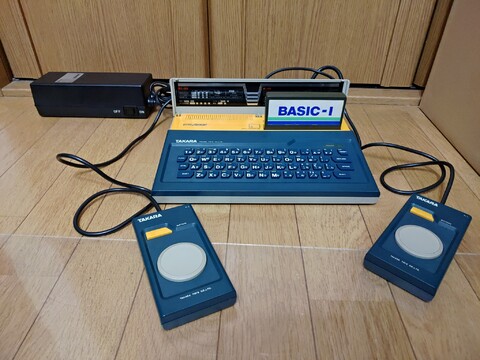 As mentioned before, it needs a cartridge to do anything, including BASIC. The system was shipped with BASIC-I, which is the entry-level BASIC (game BASIC and floating-point BASIC were available separately). In addition to BASIC-I, it also came equipped with a game tape. The game tape included a color bar demo (used to calibrate the screen), baseball, and Zack Panic. The tape requires BASIC-I to load.   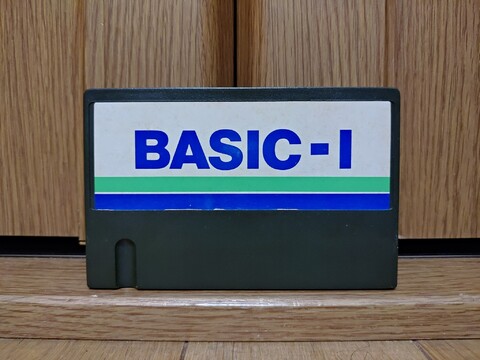   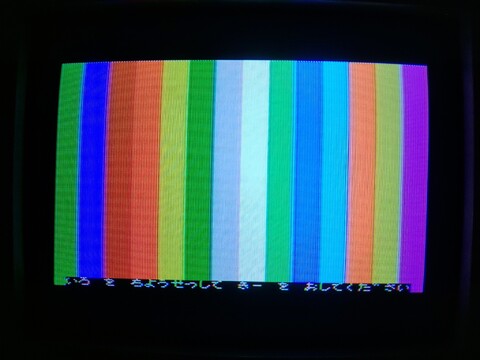 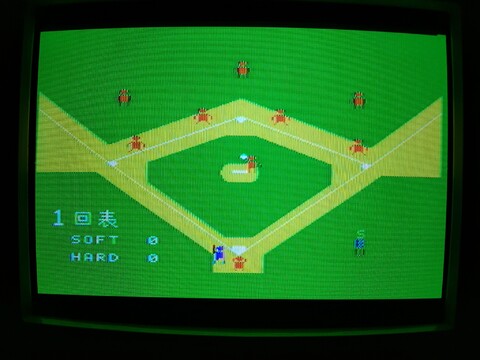 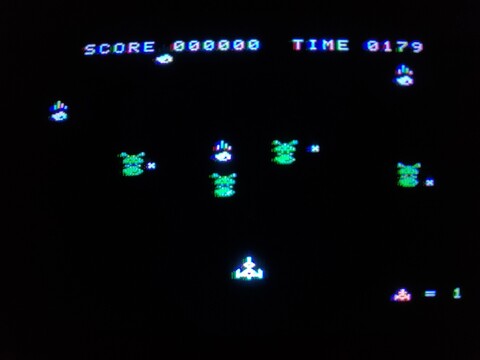 The controllers match the system nicely, and they are also a little unique. Like the Pyuta, the controllers is a full circle, though it has a bit of extra weight to them. And despite appearances, it is actually a two-button controller; the button has two actions depending on whether you press on the left side or the right. Unlike the Pyuta, though, the system is two separate controllers, so while Pyuta games are limited to turn-taking, the Game Pasokon is capable of two-player simultaneous gaming, as far as I am aware.  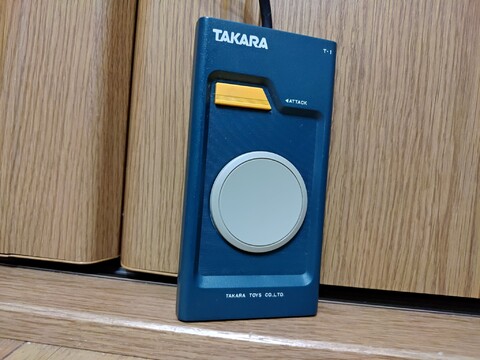 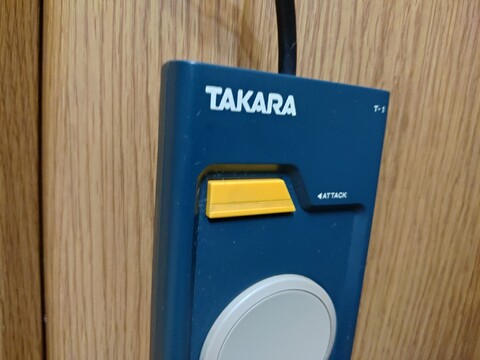  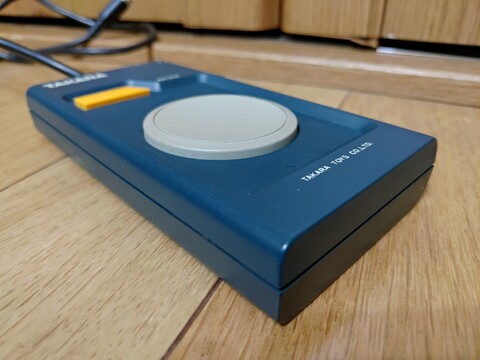  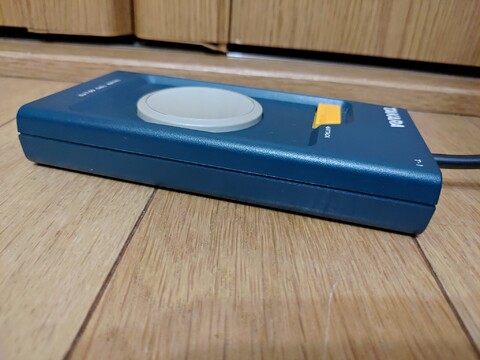  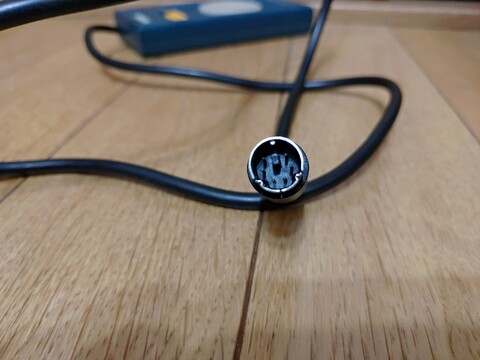 The manuals were in great condition, and features nicely designed colors and some glossy color pages.  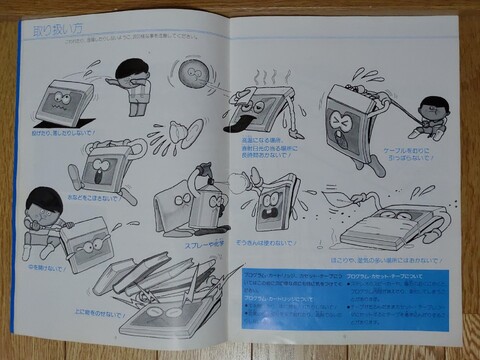     The box has seen better days. Kudos to the original owner, though, actually. They kept the whole thing in great shape except the box, which I imagine had some kind of water or mold damage, and rather than throwing it away, they did a nice and relatively discreet job repairing it and preventing the damage from spreading. 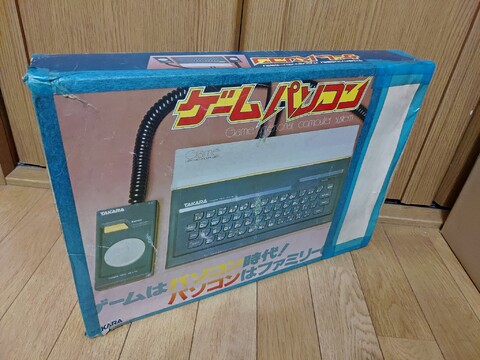 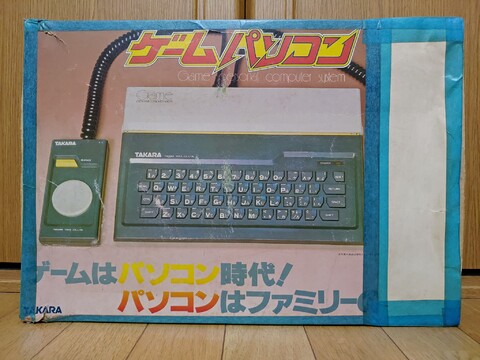 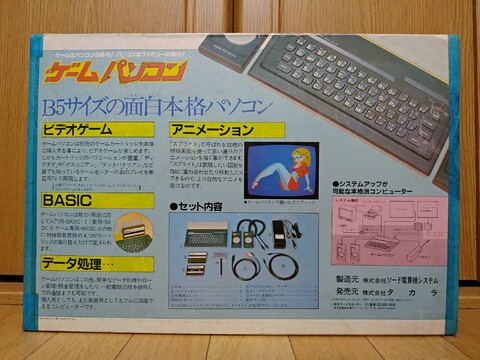 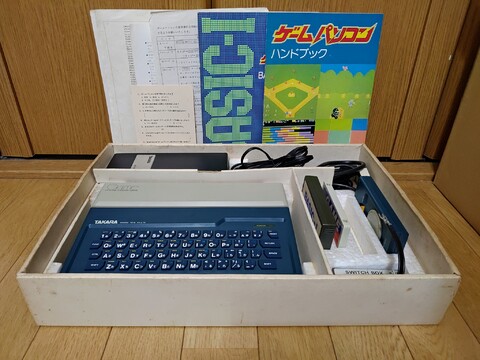 In addition to BASIC-I and the game tape, I also got three extra game cartridges. 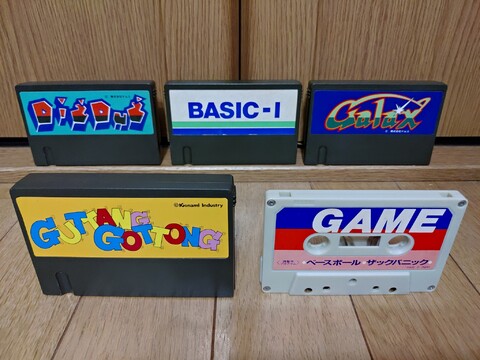 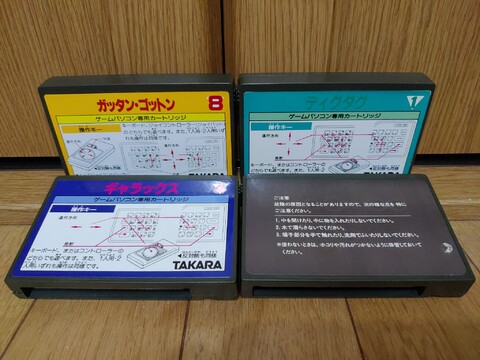 So what is gaming like? Well, its decided weak point is that it is limited to single-color sprites. But it has a lot of heart in the sound department. I had been playing silently for a while without a convenient way to connect to a speaker, but once I did, I was surprised. It uses a SN76489, which is used by some 8-bit middleweights such as the Sony SMC-777 and Pasopia 7. The sound seemed disproportionate in quality to the graphics. First was a game called Guttang Gottong, which is an imagined English rendition of the Japanese onomatopoeia for the sound a train makes rolling down the tracks. It is a common puzzle kind of game but you have to be pretty quick to succeed, which I am not. I might have passed level 1 once, I forget. The goal is to rearrange the tracks so the train can make it to all stops without crashing into any non-track tile entry points or the wall. Made by soon to be gaming-powerhouse Konami. 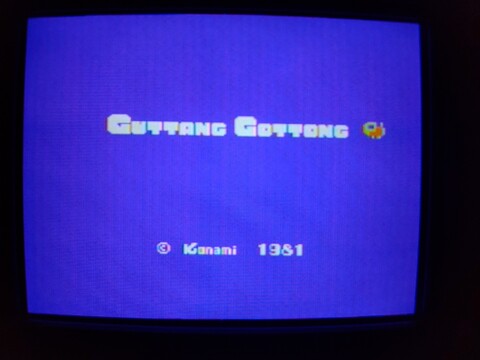 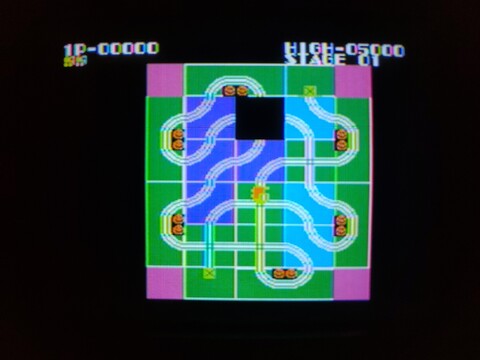    Next up is Dig Dug. If memory recalls, this is quite a hard version! The enemies more or less skip the dancing around in their pre-drilled holes sequence and just start attacking you, so you have to be ready to head towards one of the rocks and start firing your pump! But I might be confusing it with the PC-8001 version. 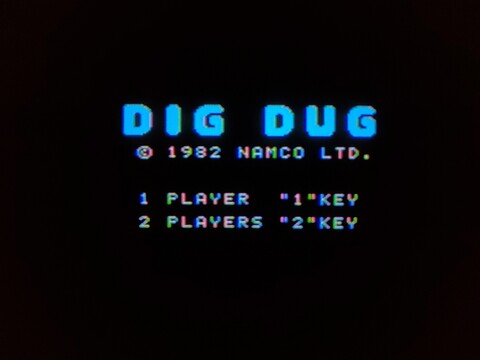 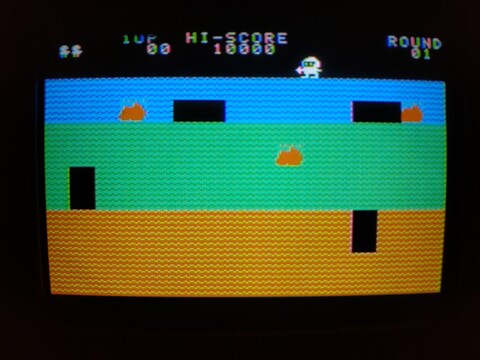 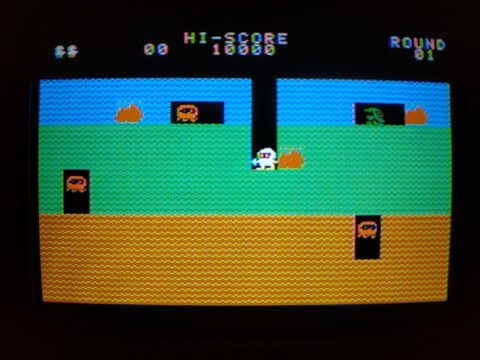 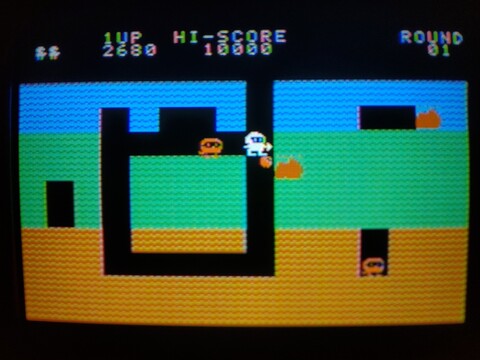 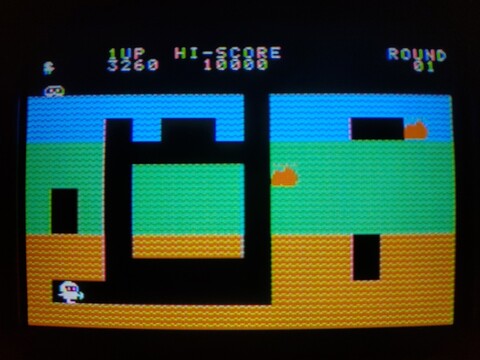  Finally is Galax. Judging by the name, it probably sounds like a Galaxian clone, but actually that's not true at all! For starters, it's licensed by Namco, so it's legit, in any event. But I don't think Galaxian was the actual target. This game definitely plays more like Galaga than Galaxian.  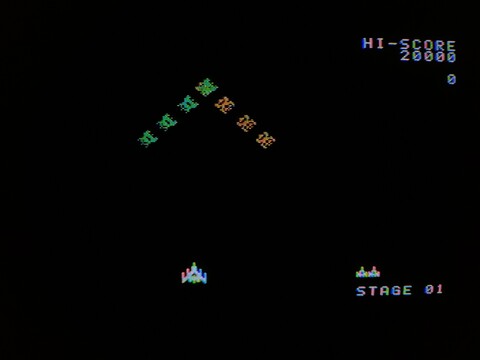 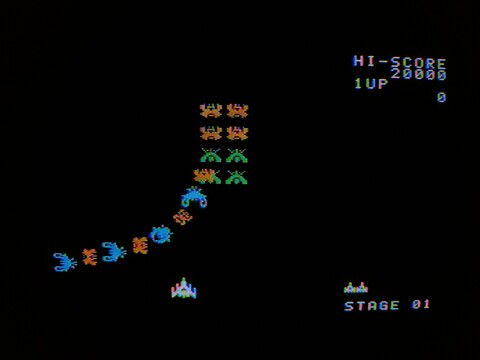 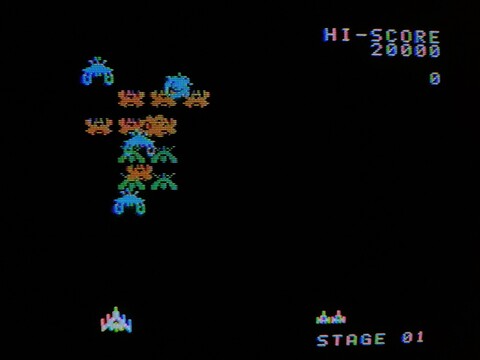 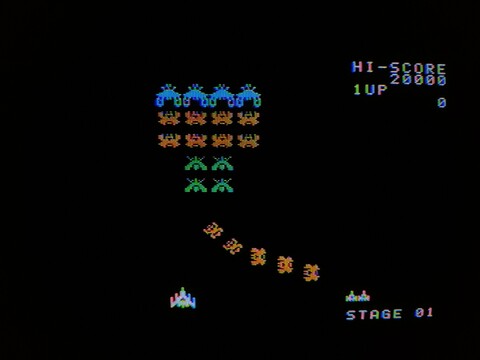    |
| 八 ビ ッ ト hachibitto |